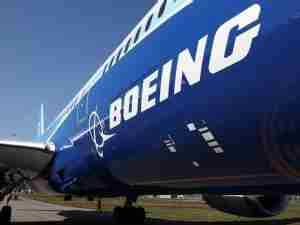US transportation stocks for the long haul
By: Reuters | Jul 07 2014 at 07:18 PM | Air Cargo | Intermodal
Transportation stocks have proven to be long-haul winners and essential cogs in any growth portfolio.
Transportation company performance is generally a bellwether of an economy's health. When consumer and industrial demand is rising, the greater the need to ship raw materials and finished products from various points of the globe.
On the retail side, a combination of higher demand and the conflict in Iraq ratcheted up U.S. gasoline prices to the highest level in six years this past Fourth of July weekend, according to the American Automobile Association. Despite the higher prices, some 35 million Americans hit the road during the holiday weekend for trips of 50 miles or more.
In the wake of the 2008 financial meltdown, transportation as a sector has been a solid performer. The S&P Transportation Select Industry Index has averaged an annualized return of nearly 29 percent over the past half-decade through July 4, according to S&P Dow Jones Indices. That trounces the performance of the S&P 500 Index, which posted a 19 percent return over that period, by nearly 10 percentage points.
For the 12-month period that ended July 4, the transportation index has been even stronger - up nearly 44 percent, compared with about 25 percent for the broad S&P 500 Index.
Where to Invest
The best way to capture returns from this vibrant sector is through a passive index fund like the iShares Transportation Average ETF, which holds transportation leaders including Union Pacific Corp, FedEx Corp and United Parcel Service Inc. The ETF has its largest holdings in air freight, logistics and trucking.
The iShares fund is up 36 percent for the past 12 months through July 4, compared with 24 percent for the S&P Industrials index. The fund has averaged growth of nearly 23 percent a year for the past half-decade and charges 0.46 percent in annual expenses.
A smaller though less-expensive and better-performing index fund in this sector is the SPDR S&P Transportation ETF, which charges 0.35 percent annually. It is up nearly 43 percent for the 12 months through July 4. It holds a broader group of transportation companies including Avis Budget Group Inc , Delta Air Lines Inc and Con-way Inc. This ETF has a higher stake in airlines and trucking than the iShares fund.
Long-Term Support
To understand the sector, you need to consider its separate moving parts: logistics, shipping, trucking and rail. Airlines are a big part of the retail side of the industry. And there are companies including FedEx and UPS that straddle nearly every mode of transportation.
All of these companies have one thing in common - when the economy is growing, their business improves.
"The valuations of many logistics companies are likely to expand on improved investor sentiment should signs emerge that the U.S. and global economies are improving," said Jim Corridore, head of industrial equity research for S&P Capital IQ, in a recent commentary.
Although the U.S. GDP shrank by 3 percent in the first quarter due to the awful winter in two-thirds of North America, growth is expected to pick up through the rest of this year.
Most pundits predict the overall economy will expand about 2 percent this year. After a strong employment report last week, analysts are even dallying with the idea of a 4 percent rise in U.S. economic growth. The market has responded heartily to this optimism, with the Dow Jones Industrials Index closing above 17,000 last Thursday. The general mood of the market will depend upon earnings growth, which many analysts predict could reach into double digits in the second half of this year.
Yet don't assume that transportation is going to be a smooth ride indefinitely. The sector is particularly sensitive to oil and fuel prices. With the ongoing turmoil in Iraq - and resulting spike in oil prices - it will be a good idea to keep a close eye on this sector. (Reuters)








